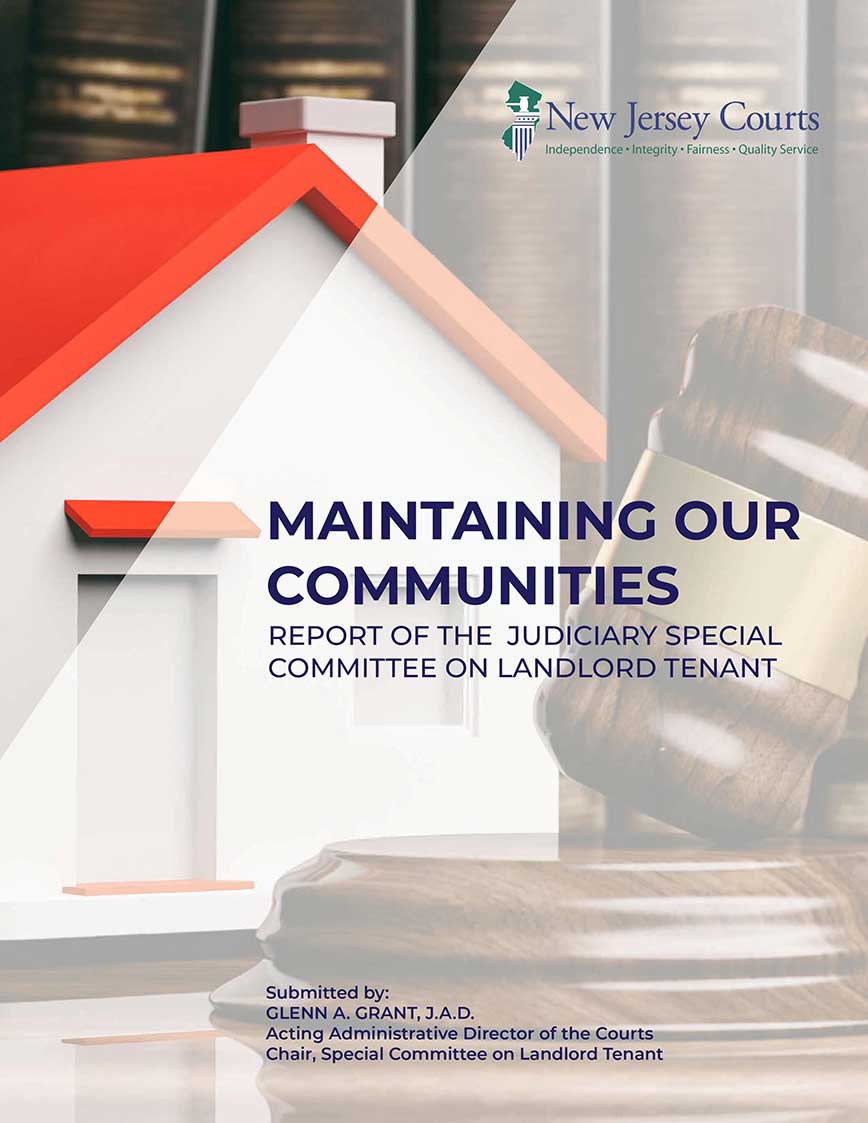Reforming the Eviction Process
In parallel with the legislative effort, the firm led the coalition’s participation in a court-reform process. While the substantive laws that protect tenants in New Jersey are strong, the residential eviction process has long functioned to displace tens of thousands of unrepresented tenants without much regard for whether the eviction comported with the law. Judges and other court staff meaningfully reviewed only a small fraction of cases; most cases were resolved by negotiations between unrepresented tenants and landlords’ lawyers in the hallways outside courtrooms throughout the state. These negotiations between parties with unequal bargaining power produced predictably unfair, and often illegal, results.
In response to sustained advocacy, the New Jersey Supreme Court appointed a committee in early 2021 to consider how best to reform the process. The firm represented a large coalition of tenant advocates on this committee. The committee produced a report recommending changes, and the coalition filed comments on the report and testified at a Supreme Court hearing on the proposed reforms.
In July, the Supreme Court adopted some, but not all, of the recommendations:
Enhanced Screening - Court staff will conduct enhanced initial review of certain complex cases, including those brought against subsidized tenants, to identify possible deficiencies in the pleadings.
Pretrial Conferences - For the first time, tenants and landlords will be called to a pretrial conference where they will have the opportunity to describe their claims and defenses to a neutral, trained “landlord-tenant legal specialist” who is a member of the judiciary staff. The specialist will also conduct settlement discussions, with the possibility of outcomes less tainted by the parties’ unequal bargaining positions.
Better Information - The court revised and updated the information to be shared with landlords and tenants, describing both the process and the substantive rights that apply.
Virtual Conferences and Trials - The court determined that pretrial conferences and trials will generally remain virtual, to be conducted by video. This will be a boon to some litigants, who will not have to travel to and spend the day in court, but others will have difficulty accessing and navigating the technology. Courthouse “technology rooms,” and the option for in-person appearances on request, may help mitigate these difficulties.
Improved Court Forms - The court created an array of new forms, including written judgments that will explain the basis of the decision and advise the parties of potential post-judgment remedies.
While these changes will make the process fairer and more transparent, much remains to be done. Unrepresented tenants still have limited means to understand and vindicate their rights, and the stakes are high. Eviction leads to a cascade of other harms, including exposure to unsafe and overcrowded housing alternatives-especially dangerous during a pandemic- and long-term disruption of adults’ employment and children’s education. The bottom line is that the eviction process will not be truly fair until tenants are guaranteed the right to counsel.

